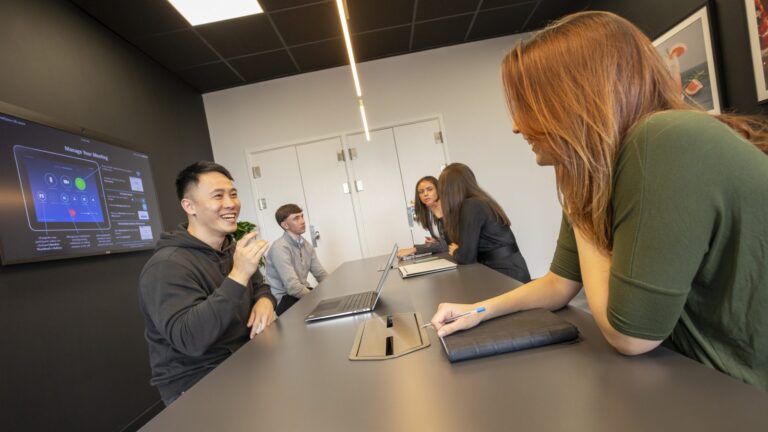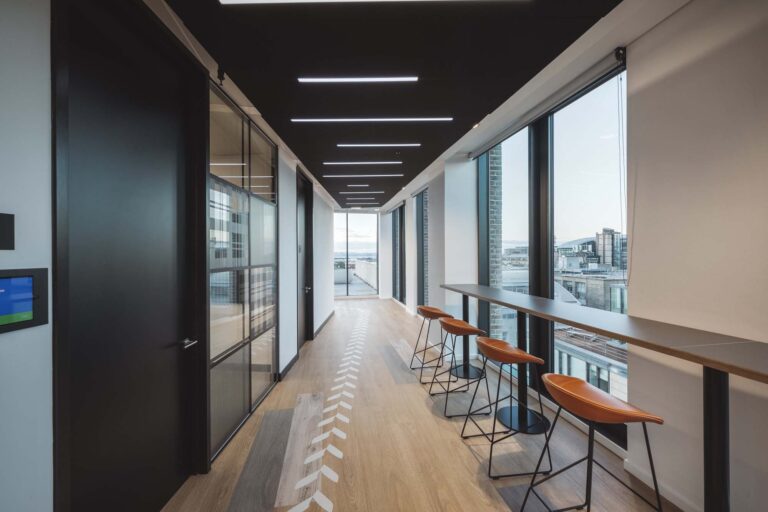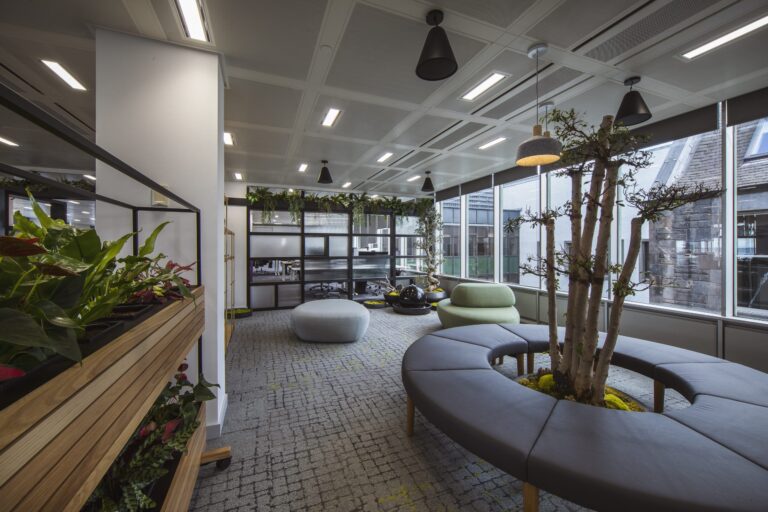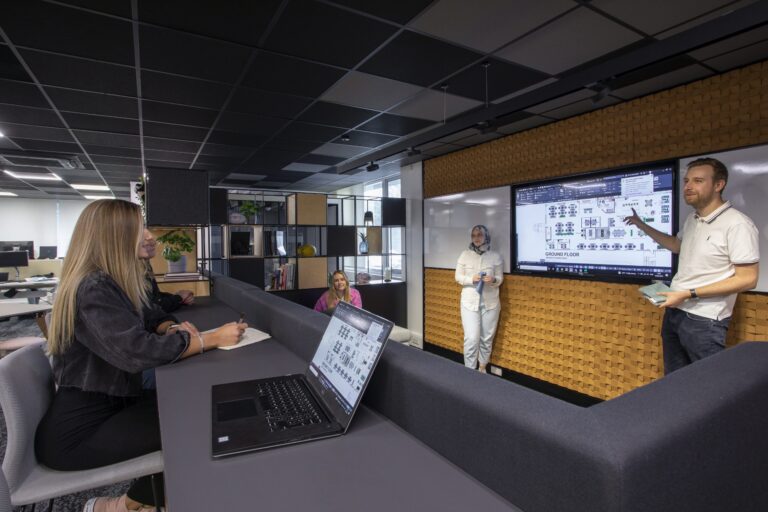
Hearing loss is the second most common impairment in the UK – and whilst it’s often associated with the older generation, there are at least 5 million working aged people in the UK who have experienced hearing loss, yet it’s still rarely brought to the forefront of conversations around ED&I in the workplace.
This week is Deaf Awareness Week – but it’s felt different to many of the other awareness weeks. During other awareness weeks throughout the year, my LinkedIn is off the hook with posts offering information and statistics, with authentic personal stories, and with hints and tips on providing more inclusive workplaces. The silence around Deaf Awareness Week, however, has been loud & clear.
Hearing loss is the second most common impairment in the UK – and whilst it’s often associated with the older generation, there are at least 5 million working aged people in the UK who have experienced hearing loss (ONS), yet it’s still rarely brought to the forefront of conversations around ED&I in the workplace.
To understand more about the experiences of those with hearing loss in the workplace, we recently interviewed Rebecca Kemp, a Neighbourhood Sport Officer and verified Lioness as a previous member of the England Deaf Women’s Futsal squad, and Zara Musker (Zara Musker | LinkedIn), current Deaf Sports Personality of the Year winner, England Deaf Women’s Futsal team captain, and Trainee Clinical Scientist in Audiology.
BT: Tell me a little bit about your experiences in the workplace?
RK: Whilst I’ve had a generally positive working experience, I personally feel as though my hearing impairment is largely a forgotten disability because I appear ‘hearing’ – I don’t visibly struggle or rely upon additional support in the workplace such as a British Sign Language (BSL) interpreter. As I have learned to cope well in the workplace, I feel as though people are often afraid to ask about my hearing impairment and what additional support I may need. It may also be my shyness that means I haven’t always asked for the additional support that could be really beneficial and I previously would have just ‘figured it out’, although I’m much more confident now at highlighting things that I, or anybody else with a hearing impairment, could benefit from in the workplace – I feel as though it’s perhaps my responsibility to do this, to raise awareness to the hearing community about the experiences and needs of those with hearing loss.
ZM: I’ve also generally had positive experiences at work, although there are lots of circumstances that have been extremely difficult. I only use one of my ears with a hearing aid or cochlear implant, so for me, localising sound is a real challenge. In previous roles, I found it difficult to hear when people were talking to me if they weren’t close by due to the poor acoustics. I’ve learned to develop lots of mechanisms to help me navigate this such as being extra vigilant and knowing where people are so if I hear my name, I know where to go. Now that I’ve moved into a career in audiology, I know that I’ve put myself into a great position to succeed because I’m not only representing the deaf community, but I work in one of the best hearing environments due to the design and layout of the rooms and the staff awareness of hearing loss.
BT: What are some of the obstacles and barriers you’ve experienced and overcome?
RK: Some work tasks that I’ve been asked to carry out have come with their own obstacles, for example, taking minutes in a meeting. It might seem simple enough, but I rely heavily on lip-reading and keeping up with who’s talking at any one time, having clear sight of them, and making notes at the same time can lead to missing details. I previously struggled through this, but it caused so much frustration, stress and panic that I’ve learned to speak up and explain how it’s not something I’m best suited for – it’s all about raising awareness for those around me as it’s not necessarily something anyone would have thought about if they don’t have a hearing impairment. I also struggle being on a virtual meeting with somebody who has a lot of background noise, for example in an open plan office – the sound interference makes it challenging to pick up what’s being said so it’s always better if we are both dialling in from quiet spaces. I prefer in-person meetings in general, where I can better communicate with the other person. In larger meetings, I also struggle with the background noise and interference if there are multiple conversations happening at once in the same room – I find it difficult to get involved in these discussions as it takes so much time and effort to try and listen and lip-read. I can appear to be quiet or as though I don’t want to get involved, but that isn’t the case at all, it’s just the struggle to hear. I haven’t even got onto struggling with strong accents, especially if they speak fast or I’m unable to see them clearly, so if we’re on Teams, I often end up using ‘closed captions’ to try and interpret this. Same goes for videos – our digital team produce and review videos, which initially had no subtitles so it was difficult for me to follow. Once I raised this, though, the team have included subtitles since!
ZM: There are many challenges I face on a daily basis in the workplace, but I’ve done lots of work to identify and understand these situations, either acting on them accordingly or making my own adaptions to make it work for me. A lot of these situations could be avoided or mitigated by workplaces that strive to understand disabilities and the difficulties that this may bring. I appreciate it’s never going to be a perfect environment but having open and honest conversations with someone with a disability can result in a big difference.
BT: Are there any environmental factors that have improved your experience at work?
RK: Some key elements to improve inclusivity for people with hearing impairments include good lighting as we need to be able to clearly see the lips of the person speaking – this also means trying to speak to the group rather than facing the screen. Acoustics of the room and space can make a big difference, particularly to reduce the background noise that can make conversations difficult!
ZM: Although I personally don’t use hearing loops – the loop system would be so direct to my cochlear implant that I wouldn’t be able to hear anything else – I know a lot of people who do use them and benefit from them at work. I do use a Mini-Mic, which is a small device I can give to somebody who’s speaking directly to me, which works very well in circumstances where there is a lot of background noise. If I need to use a phone at work, I tend to use my own mobile phone as it streams to my implant. The acoustics in offices is something that could really help somebody with hearing loss – for example, soft furnishings such as carpets, acoustic panels, and fitting rubber caps to chair and table legs. Also positioning the hearing-impaired employee in an area where they can see the rest of the room. Good lighting an minimal background noise are a must.
BT: What progress have you noticed since joining the workforce?
RK: Since I started working, technology has continued to develop and some of the equipment you can now purchase to support an individual with a hearing impairment is fab! I have an Oticon Clip, which was purchased by my employer on my request. It’s a small box, about 3cmx2cm that has Bluetooth connection to my hearing aids and acts as a microphone – so it can be given to someone who is presenting if you’re in a large room or conference and they clip it to their top and the sound goes directly to my hearing aids. Additionally, you could put it n the middle of a group of people in a meeting to support with the sound information I receive as it blocks out the background noise.
I’ve found that my workplace are getting better at understanding the experiences and needs of somebody with a hearing impairment – I have developed my confidence to raise points of support and awareness, which both reminds them of my hearing impairment as I could be perceived as ‘hearing’, but also opens the dialogue for them to ask questions as well. I appreciate that if you are not someone living with hearing loss, you might not understand the struggles or appreciate how much of a positive difference can be made with these small adaptions.
My overall experience has been really positive, and I know that if I now raise something, it will be considered and actioned.
ZM: I’ve noticed there is more emphasis on the Access to Work grant, which is Government funded and provides the necessary equipment for those with a disability in the workplace to make work accessible – I didn’t know about this until about two years ago!! I’ve become more confident to speak up for myself, which can be difficult and has been a process, but I’ll talk to colleagues if there is a situation that I know is going to be difficult for me.
From our discussions, it was clear to that – whilst having very different work environments – there were some common themes from between what Rebecca and Zara experienced.
- They both felt that the onus was on them to ‘struggle through’ situations that were adding stress and frustration to their daily lives and try and develop coping mechanisms until they felt comfortable and confident enough to raise these points to their colleagues and employers.
- There was little or no deaf awareness within their organisations, which they took upon themselves to raise. This is common across many diverse groups, but I’d suggest that it’s should not be the individual’s responsibility to do this, if an employer identifies a knowledge or awareness gap, they should seek to learn more.
- Technological improvements and products are available to support the hearing impaired community; both Rebecca and Zara used the mini-mic/ Oticon Clip, which aids in clarity of noise information and reduction of background noise, both of which were affecting their working experiences.
- There are some simple adjustments to the workplace that can create a much more inclusive environment for those with hearing loss, specifically around the lighting, acoustic treatment, and orientation of desks.
- The more open dialogue and curiosity exhibited by colleagues and employers, the more comfortable and confident Rebecca and Zara felt about raising their needs and requirements.
I just wanted to extend my thanks to Rebecca and Zara for sharing such honest and authentic insights to their own experiences, and if you wanted to understand more about hearing loss, here are some great resources:
See how we could help with your new office interior design or office design and build project here
Get in touch
We love nothing better than talking all things workplace and design – got a question, potential project or just need some guidance?
Drop us a note…




